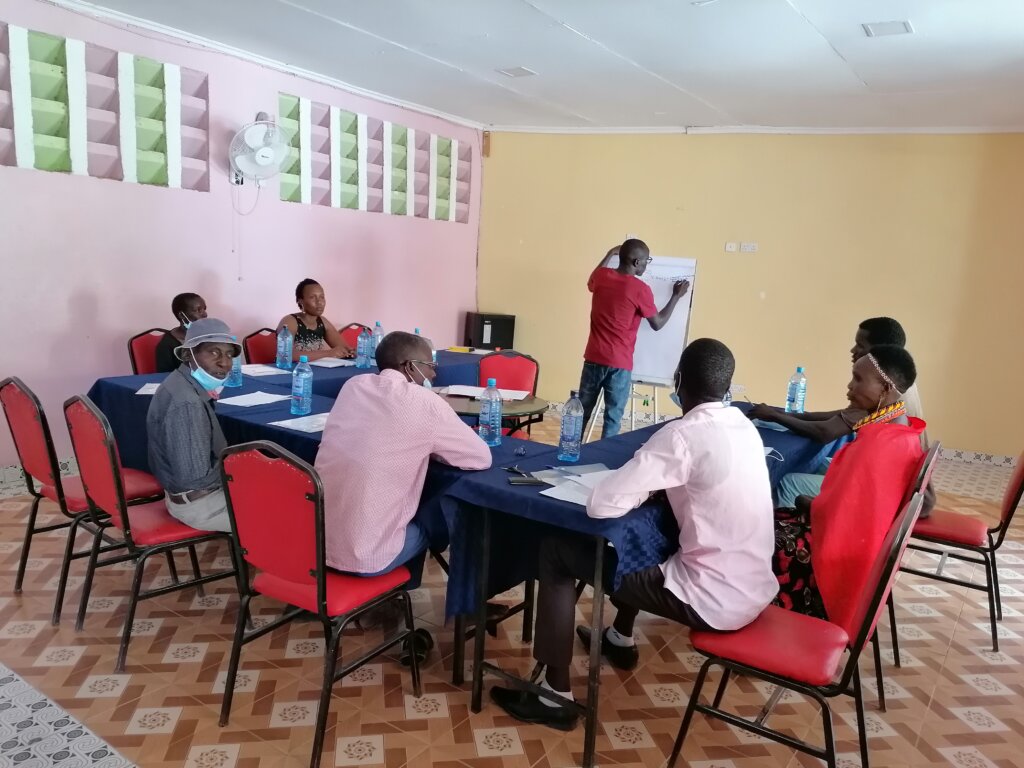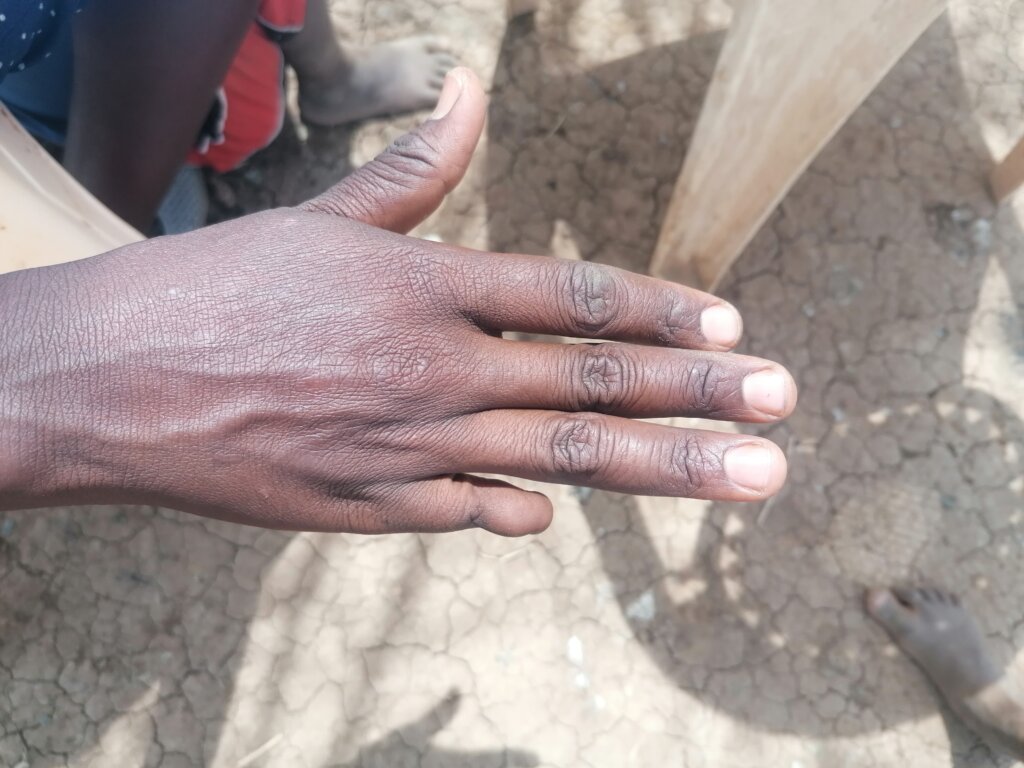Contributing to the perception of snakes in my community
As a veterinarian, I wanted to contribute to the perception of snakes in my community. The majority of Kenyan residents are pre-conditioned to kill snakes upon confrontation, this is mainly due to the devastating consequences that result from venomous bites causing disabilities, chronic conditions and ultimately death. Hence, snakes are considered as “bad” for humans. From my veterinary experience, I understand that animals (including reptiles) are primarily harmless unless confronted. When confronted, animals have variable self-defense mechanisms depending on the species, in this case snakes tend to bite.

Focus group discussion of eight residents in Baringo South Subcounty, Kenya where a Knowledge Attitude and Practices (KAP) discussion took place.

A woman suffered finger paralysis after being bitten by a snake while asleep at night.
Therefore, my pursuing of snakebite research was mainly to establish whether peaceful co-existence between snakes and human is possible. During my research work on snakebite risk factors in Baringo county, I was also able to learn the “goodness” of snakes during a focus group discussion. We established there were families who kept snakes and protected them which was new information for me. Additionally, there are snake species which are friendly and live (like pets) with the communities in the same house, they also love listening to conversations and peep from the corner of the house. I found this positive attitude very refreshing and informative on strategies on co-existence.

Dr. Peris Njoki is a veterinary epidemiologist in Kitui County Kenya.
